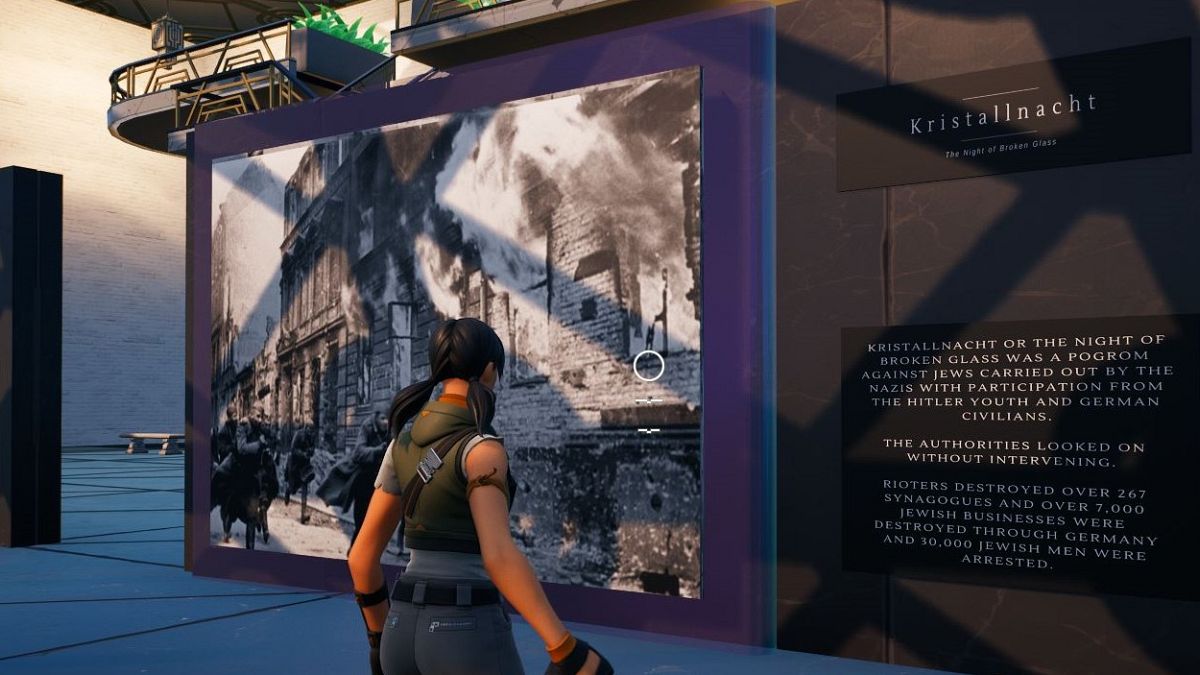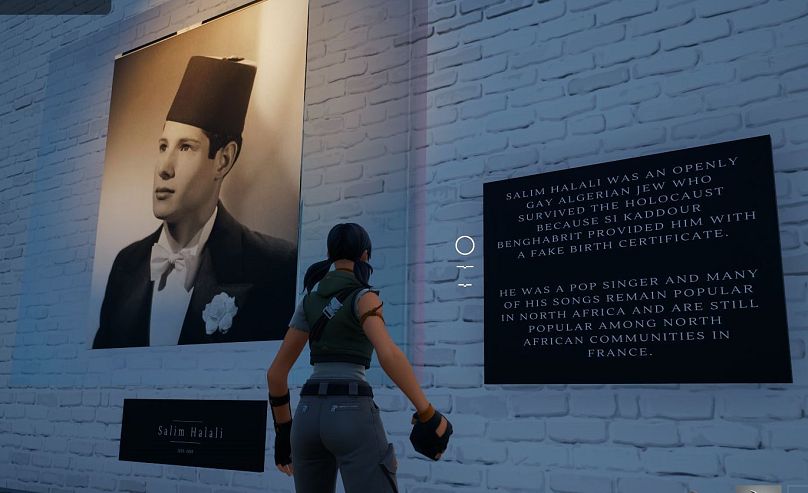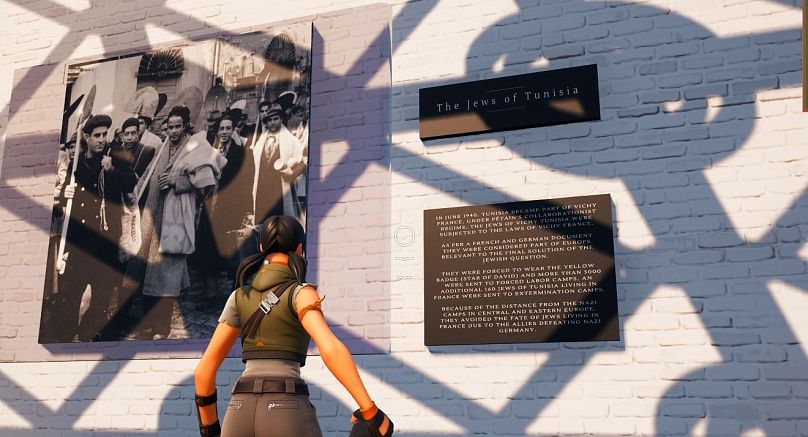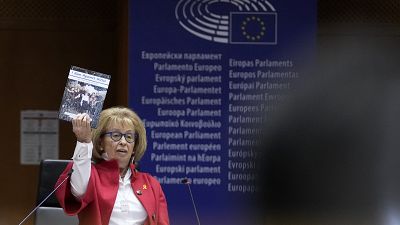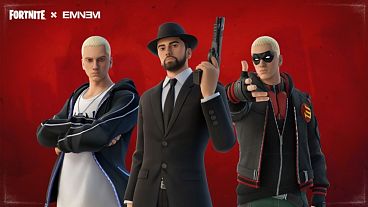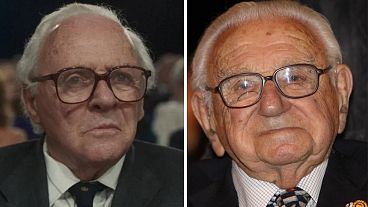Jerusalem, Berlin, Warsaw… Fortnite?
The location of the newest Holocaust Museum might come as a surprise to anyone unfamiliar with one of the most successful video games in history.
Originally launched as a battle royale style online fighting game, Epic Games’ Fortnite has become incredibly popular for its customisable world building capabilities, akin to games like Minecraft and Terraria.
Now, the newest edition to the game is a Holocaust museum. The museum has been designed by Luc Bernard, the man behind The Light in the Darkness, considered the first educational game on the Holocaust.
The Light in the Darkness was released earlier this year. It gave gamers the chance to play as a Polish Jewish family trying — and failing — to escape the horrors of the Holocaust in France. It’s a harrowing experience for a videogame.
“People often cry at the end,” the game’s director Luc Bernard tells Euronews Culture.
Available for free, The Light in the Darkness has been downloaded across the world. It’s been particularly popular in the Middle East. “Saudi Arabians are completing the game the most,” Bernard explains.
Finding ways to improve Holocaust education is a big motivator for Bernard. So when Epic Games opened up their Fortnite Unreal Editor, his team focused on a new project: the Fortnite Holocaust Museum.
“80% of Americans haven’t visited a museum,” Bernard says. Looking at the huge budgets of Holocaust museums, he couldn’t question the effectiveness of in-person museums as an educational tool. “Okay then, let’s make a digital museum in one of the biggest video games that’s around. It’s that simple.”
After extensive research, Bernard and his team have come up with an elegant interactive museum exhibition within the Fortnite game. The player zips around the museum and can find information on a range of Holocaust topics, including some that Bernard feels have too often been left out of traditional exhibitions.
Instead of exclusively focusing on the experiences of the Ashkenazi Jews of Eastern Europe — although they are still front and centre — there are also pieces that relate stories of Sephardi Jews in North Africa. There are stories about Abdol Hossein Sardari, the Iranian ambassador who issued thousands of passports to Jews trying to escape France. Other exhibits look at the lives of LGBTQ+ Jews and the Black Panther tank battalion who liberated Jews.
“It’s about making a museum that’s more appealing to a younger audience,” explains Bernard.
Bernard’s team aren’t the first to consider the Fortnite space ripe for an educational opportunity. A Martin Luther King Jr. event gave players the chance to learn about Black history. The creators of that event have since reached out to Bernard. He’s a big fan and emphasises their shared goal of revolutionising how the world sees gaming.
“We’re trying to show organisations and museums that, instead of focusing on one city and hoping tourists come by, you could get the entire state to the entire country. You could get the entire world involved,” Bernard says.
Improving Holocaust education is especially important as the last surviving witnesses die out. Explaining the horrors to the next generation remains crucial. However, there’s growing concerns that many younger gamers are often in environments that effectively condone Holocaust denial.
An Anti-Defamation League (ADL) investigation into online antisemitism found that many Holocaust deniers are using social media platforms and online gaming communities to spread their conspiracies. Although many games were implicated by the study, Fortnite was particularly singled out by the ADL.
Bernard has continually defended Epic Games and Fortnite from the allegations. To make sure people behave appropriately in the upcoming museum, Bernard and Epic have turned off emotes and wall destruction capabilities.
Although there is certainly a moderation concern in usernames, he is emphatic about the support Epic Games provided him to make his educational games.
“[ADL] are great people,” he says. “But I think Epic are one of the best companies to work for in the gaming industry and they treat hatred very seriously.”
The Fortnite Holocaust Museum does not yet have a release date.
